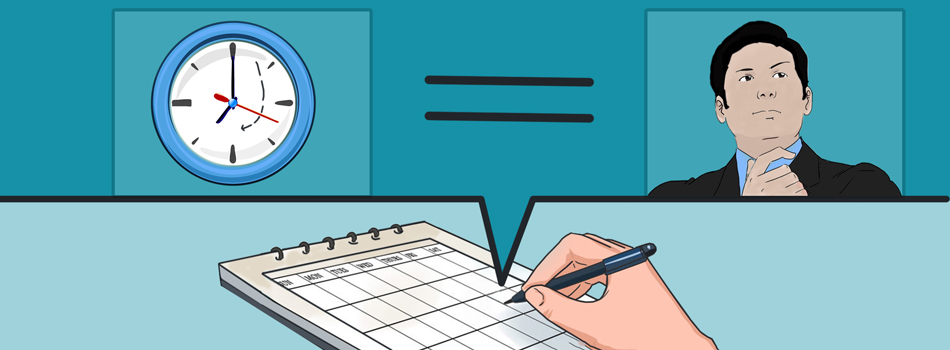
Take Control of Your Time! - 5 Hacks
published : 20 September 2015
1. Make a To-Do List
A to-do list is a stress relief tool. With all the stress and worries of everyday life, we often get overwhelmed with all the things we have to do. This distracts us and slows us down.
Making a list frees our mind from having to remember everything all at once. At the same time, once the tasks are on paper, they don't seem to be as overwhelming. And writing down tasks on paper gives us a sense of being in control.
2. Make Choices
On any given day, there might be a hundred things to do, but it would never be possible to do all of them. The key is to know your priorities.
We feel powerless and stressed because we spend most of our time doing urgent but relatively unimportant tasks or doing things at other people's request while what is most important to us remains undone.
So decide on your priorities and cross off others from your to-do list. Get rid of the fear of other people's reactions, (the fear meditation can be very effective in this regard), and learn to say 'no'. You will find yourself much relieved, and discover saying ‘no’ doesn't hurt others’ feelings as much as you thought.
3. Schedule Your Work
Assign a time for each work on your list and do it then. You are free to organize your schedule any way you want, but once you make it try to stick to it as much as possible. Make your schedule realistic, and incorporate extra time for minor disturbances and exigencies. Allot your most creative and undistracted time for creative work.
Once you master enough self-control to do things as per schedule, you will be free from worrying 'When will I get things done', because you will really know by then how and when to get it all done.
4. Learn to Manage Distractions
Learn how to minimize and then manage the distractions. In a study on 1000 workers from Basex, an information technology research firm in New York City, researchers found that interruptions caused by emails, phones, etc. consume an average of 2.1 hours a day or 28% of the workday. Constant interruptions not only waste time, but also make us feel stressed and inadequate, and decrease the quality of our work. In South Asian regions, interruptions caused by an unexpected visitor is a big time waster.
So put your phone on silent mode when you are doing focused creative work. Make your phone calls when you are in the car or at some other time when it won't interfere with your work mood. Answer emails only at a specific time. When someone visits you, instead of asking ' How are you?', ask 'What can I do for you?'
5. Delegate
Learning to delegate is a skill that can help you deal with workload pressures.
The key to learning to delegate is to accept the fact that the delegated work won't be done exactly the way you would have done it. Once you can accept that, you can move on to find out which tasks can be delegated and to whom.


















